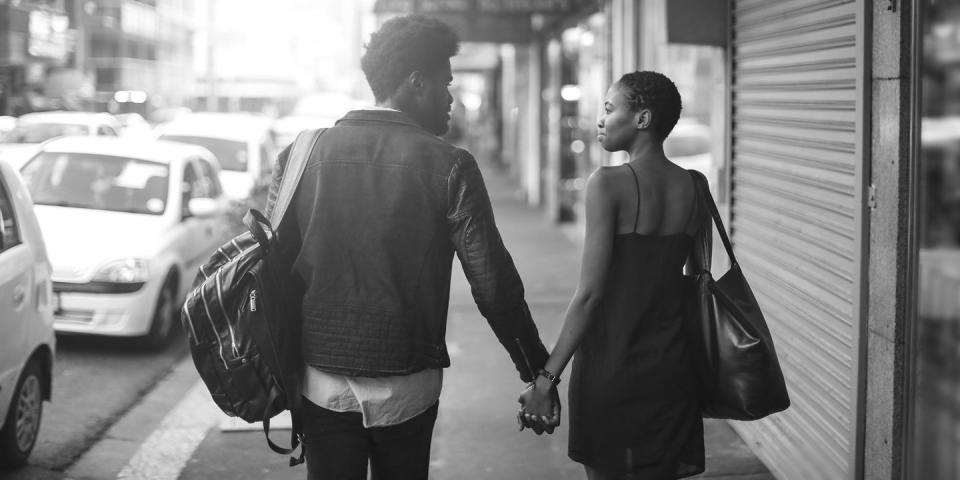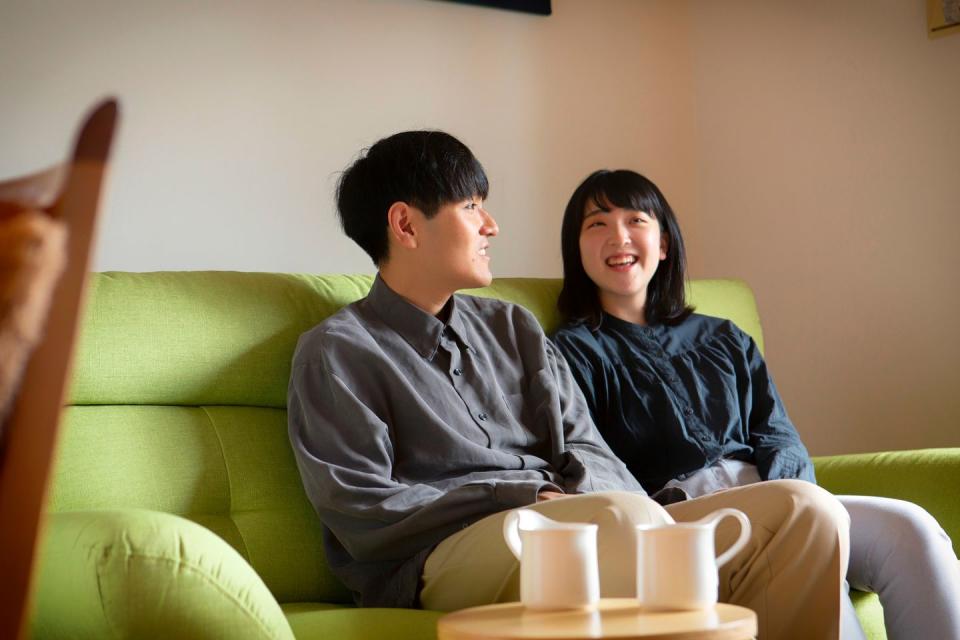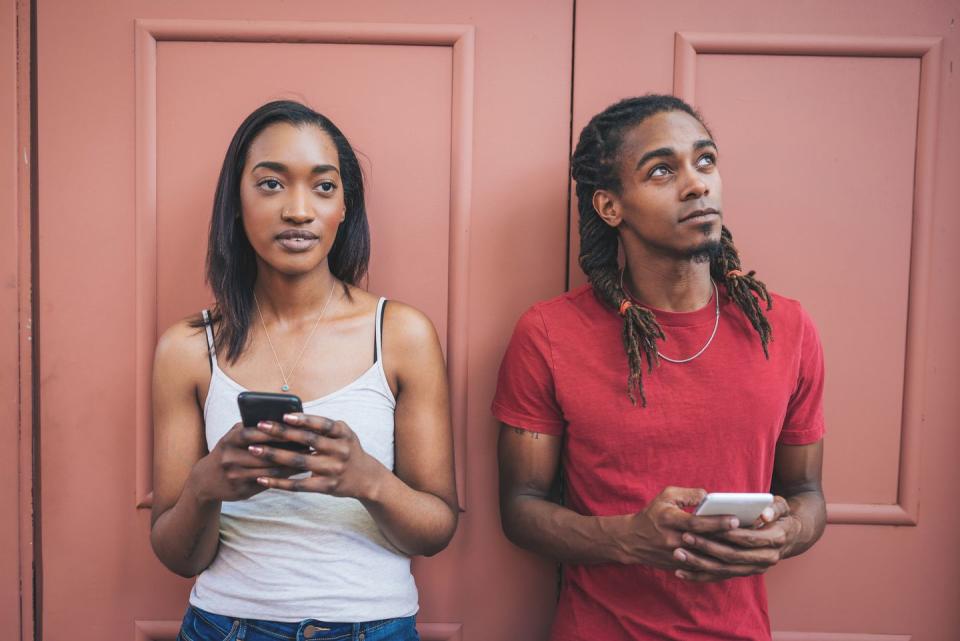What to expect when you go to relationship counselling
Relationship counselling might sound daunting. Talking about your personal life with a total stranger? It doesn't come naturally to everyone. But more and more couples are deciding to see a relationship therapist to help them work some stuff out - and that can only be a good thing. Whether you're interested in ironing out some issues in your relationship, or just fancy a check up or to find out if your relationship is healthy, relationship counselling could be the answer. Simone Bose, an expert Relate relationship counsellor explains what you should expect when starting relationship counselling.
How relationship counselling works
You may have heard it referred to as couples counselling or relationship counselling, but they're both the same thing. Not many people realise Relate also offers individual counselling which can help you to explore any relationship issues and help build self-esteem. With relationship counselling, Simone says it's really important for both partners to attend sessions so the counsellor or therapist can get balance. She explains, "We don't want to have any bias or hear one narrative on a situation."

Counselling has boundaries and rules that are super important to both protect you and make you feel secure. These include the time limit of the session, and the fact it takes place at the same time and location every week. Counsellors won't talk about themselves much, and you won't make friends with your counsellor either. "This all has an impact on you psychologically," she says. "Counsellors want the clients to feel secure and safe and able to be vulnerable. Being sporadic about the sessions isn’t good. So you should try and be consistent, rather than coming once a month."
Who needs relationship counselling?
The reasons couples seek a counsellor can really vary, Simone says. "Some people have got into really negative patterns of communication with their partner. Either it’s got worse and they’ve avoided it, or their conversations tend to go nowhere, or end up growing into arguments. They’re at that point where they’re not able to deal with it themselves or see outside of the issue, and they need that extra help."
But other couples come to counselling before any major conflicts arise in their relationship. "Some people are very conscientious about their relationship and may feel like they want to resolve minor things before they get any worse. You do get a lot of young couples who really care about their relationship and want to sort it out before they go deeper," she explains. "So it’s not always crisis point. You get people who just want a healthy relationship."
It's common for counsellors to also see clients who feel broken after cheating. "They often want so much to make it work or trust their own judgements," Simone says. "A lot of people don’t know what to think or how to judge a situation, they don’t trust their own emotions, so we help them to do that. We also get people who are suffering from past trauma and don’t want to feel pain any more."

Relationship counselling will help you understand each other more
"A lot of it is to do with people trying to understand how each other works, but also how they work themselves," Simone explains. "People sometimes don't realise why they react the way they do, so it helps them understand and process. A lot of what we do is try and create that empathy for each other, to try and stand in the other person’s shoes and understand where they’re coming from."
But you'll also learn a lot about yourself, your identity and what you want. Simone adds, "Counselling makes you think about your mental health and emotional wellbeing. It also helps you plan a better future for yourself, get meaning from your life and to be better at dealing with your every day."
At relationship counselling, you will need to open up
"A couple needs to be ready to try and be open, because if you're not open you're not going to get the best out of it," Simone explains. "It can be scary, but if you feel nervous or like you might freeze up, try and remember the reasons why you’re there."
Simone suggests writing notes beforehand so you can refer to them when you get into the session. This may help you structure your thoughts and explain them better, too. "It’s important clients have as much as an input as the counsellor, so going in and expecting the counsellor to do all the work is not the right attitude. The counsellor can only do so much, and you have to come half way. Get used to the idea that it’s all about you."

What the relationship counsellor will ask you
Why have you come? What’s made you come now over any other time? What’s the trigger? - these are all common questions you'll be asked at the start. You'll also be asked a little about your family history in the first session.
"I tend to work on what people believe about how they live life, where they’ve learned their emotions from, and how that plays out in their couple dynamic," she says. "We’ll go to the family and learn about how each partner attaches, and we usually find in a conflict situation each person will react like how they did when they were a child. We learn about that, reflect back on it, and relate it back to the present and how those behaviours are creating conflict." This then allows clients to be aware of these behaviours and perhaps work to change them.
Obviously, some people find talking about themselves and their emotions really tricky. But Simone says talking in metaphors gives people the language to express themselves. "I'll ask them to explain themselves in a colour, or in a more descriptive way. A common example is, 'I feel like I’m in a bubble, I can’t get out.' People then find it easier to talk about how they feel in relation to the metaphor."
Will you have to talk about sex at relationship counselling?
A sexual problem may be what a couple presents with, and in these cases they may be offered sex therapy if they have a recognised problem like pain during intercourse, loss of desire or premature ejaculation. In most couple counselling contracts, the sexual relationship will be discussed.
"When you come with your initial issue, it may be quite surface and not a sexual issue. As you get deeper into counselling, a sexual issue might come up as you discuss this," she says. Simone says most couples do eventually feel able to discuss sexual issues.
"Maybe a few sessions in you may feel ready to talk about it by then, because you have to feel trust with the counsellor and comfortable. And once you get used to talking about one thing, it may naturally lead to that topic. You may find it’s connected with the other issues."

The relationship counsellor won't take sides
If you're going to counselling hoping the counsellor will back you up in arguments, that's really not going to happen - counsellors take a neutral position. "It’s not our role to tell someone they’re bad," Simone explains. "Our role is to explore why people are the way they are. Rather than blaming somebody, we get to the core of what’s happening and the thought process behind their actions.
"We encourage our clients not to blame each other, as that type of language doesn’t help and just makes people have their defences up. People do come in angry and wanting to show their pain, especially when there’s been infidelity, but you can’t continue that way."
How to find a relationship counsellor
Simone explains there are so many counsellors out there, that the best thing to do if you’re is either go to Relate as they’re specialists, or find a counsellor who specialises in relationships.
You may also be referred to Relate through your GP, and there may be the option of reduced fees, depending on your income.
Women who've had relationship counselling share their experiences
"You both have to want it"
"Therapy helped us and still is helping us. It gives both of us more insight on each others feelings and thoughts on our relationship. The one thing I will say is you both have to want it, otherwise its a waste of time." [via]

"It gave my husband insight into his own behaviour"
"I was shocked by how much it helped us. This probably sounds terrible, but for me the really effective component of it was that it helped my husband gain insight into his own behaviour, and what he should be doing differently if he wanted our marriage to be happier. One strategy that was great was that the counsellor asked us to talk about the things we love about each other that made us believe in the other person as a life partner. Neither of us are very effusive people in general, so it was actually really moving to hear my husband say a bunch of nice things to me about me. That probably helped me back down and feel less defensive/angry/resentful." [via]
"I found out a lot about my partner that I didn't know"
"My partner flees when I try to communicate with him about important things. He likes to walk off mid-discussion or turn on the TV. In counselling he has to sit there and take it. It's hard for him. We are currently in the process. It's helped tremendously but it's a work in progress. We both have a lot to fix. The important thing is that we both want to be there for each other. I found out a lot of things about him I didn't know and vice versa. It can be shocking, rocky, anxious, and sad sometimes." [via]

"It made me realise we weren't going to fix things"
"I ended up asking for a divorce during counselling. I actually think that going to counselling helped us to clarify what the issues were between us, reveal some hidden resentments, and make me realise that we really weren't going to fix it. A year of trying made me feel like he was really good at making all the right noises while just waiting for me to realise that he was right in all areas all along. So as sad as I am that we needed to divorce... we needed to divorce. If anything, I wish we'd seen a counsellor years and years earlier, to work on some of these issues before they were a huge thing - but he thought therapy was a crock, so it never seemed like a safe thing to do." [via]
"I was already checked out"
"I was already checked-out of the relationship, but I had tried to check back in. It didn't work for me. It did help clear the air and bring up my grievances. I am non-confrontational, so without the counsellor's help, it would've never come out." [via]
You Might Also Like

 Yahoo Sport
Yahoo Sport 





































